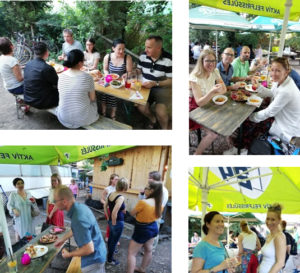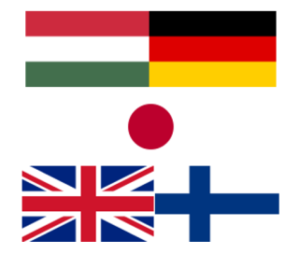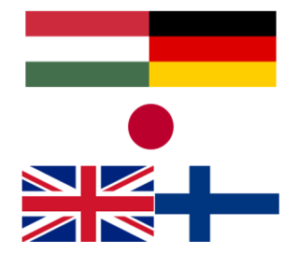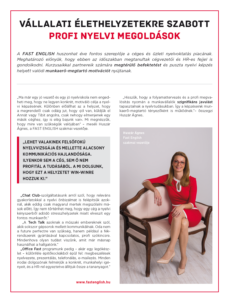
Fast English Duna-parti nyárindító
Nyelviskolánk az évadot egy közös bográcsozással zárta a Római-parton, a Két Rombusz udvarán…

Nyelviskolánk az évadot egy közös bográcsozással zárta a Római-parton, a Két Rombusz udvarán…

A névelő viszonyszó. Nem lehet önálló mondatrész, nem toldalékolható, és többnyire hangsúlytalan. Megelőzi a főnevet vagy a főnévi szerkezetet vagy a főnévi névmást. Alapvetően a határozottság és a határozatlanság, az egyediség és az általánosság, az ismertség és a nem ismertség közötti kontrasztot fejezi ki.

A főnév olyan alapszófajú szó, amely élőlényt vagy élettelen tárgyat vagy gondolati, elvont dolgot, illetve ezek fogalmát jelöli. Fontos építőeleme a mondatnak. A valóban létező vagy ilyennek gondolt élőlények és tárgyak nevei a konkrét, míg a fogalmak, gondolati jelenségek, cselekvések, tulajdonságok, állapotok megnevezései az elvont kategóriájába tartoznak.


A legutóbbi továbbképzésünkre szeptember 28-án került sor. Erre az alkalomra Szalay Ádámot hívtuk meg trénernek. Rendkívül instruktív és egyben roppant szórakoztató délutánt töltöttünk együtt a Mesterek és Módszertanok Házában.

„A boldogságot tanulmányozom. Mindennap arra a kérdésre keresem a választ, hogy miért boldogabbak egyes emberek másoknál. Azt hallottam, hogy a zenészek csak ránéznek a kottára, és hallják a zenét a fejükben. Ugyanez történik velem, amikor a boldogságról szóló adatokra nézek: jól élt életek megnyugtató zenéjét hallom.”
A Fast English hazánk egyik vezető üzleti angol nyelvtanfolyam szolgáltatója. A céges angol nyelvoktatás, az üzleti nyelvi képzés, az irodai angol, az üzleti szókincsfejlesztés mellett a szakmai angol és a vezetői kommunikáció a fő profilunk.
céges angol nyelvoktatás | üzleti coaching | céges angol nyelvtanfolyam | üzleti nyelvoktatás | vállalati angol | üzleti angol nyelvtanfolyam | business English course | nyelvi coaching | állásinterjú angolul | nyelvi audit | telefonkonferencia angolul | interkulturális képzés | online céges angol nyelvoktatás | céges nyelvoktatás
Copyright ©
A legjobb felhasználói élmény biztosítása érdekében olyan technológiákat használunk, mint például a cookie-k, amelyek tárolják az eszközinformációkat és/vagy hozzáférnek azokhoz. Ezen technológiákhoz való hozzájárulás lehetővé teszi számunkra, hogy ezen az oldalon olyan adatokat dolgozzunk fel, mint a böngészési viselkedés vagy az egyedi azonosítók. A hozzájárulás elmaradása vagy visszavonása hátrányosan befolyásolhat bizonyos funkciókat és funkciókat.